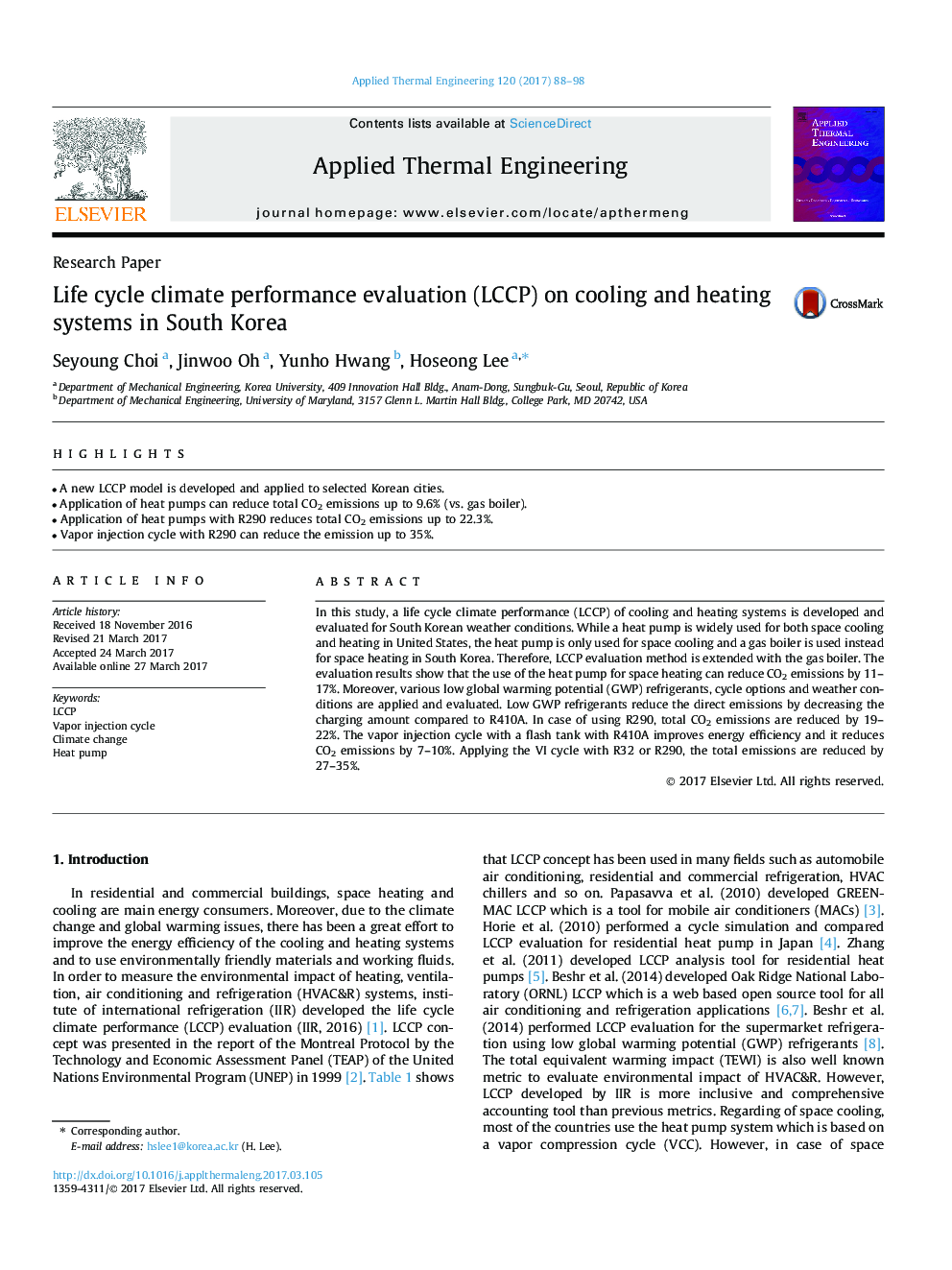| کد مقاله | کد نشریه | سال انتشار | مقاله انگلیسی | نسخه تمام متن |
|---|---|---|---|---|
| 4990987 | 1457109 | 2017 | 11 صفحه PDF | دانلود رایگان |

- A new LCCP model is developed and applied to selected Korean cities.
- Application of heat pumps can reduce total CO2 emissions up to 9.6% (vs. gas boiler).
- Application of heat pumps with R290 reduces total CO2 emissions up to 22.3%.
- Vapor injection cycle with R290 can reduce the emission up to 35%.
In this study, a life cycle climate performance (LCCP) of cooling and heating systems is developed and evaluated for South Korean weather conditions. While a heat pump is widely used for both space cooling and heating in United States, the heat pump is only used for space cooling and a gas boiler is used instead for space heating in South Korea. Therefore, LCCP evaluation method is extended with the gas boiler. The evaluation results show that the use of the heat pump for space heating can reduce CO2 emissions by 11-17%. Moreover, various low global warming potential (GWP) refrigerants, cycle options and weather conditions are applied and evaluated. Low GWP refrigerants reduce the direct emissions by decreasing the charging amount compared to R410A. In case of using R290, total CO2 emissions are reduced by 19-22%. The vapor injection cycle with a flash tank with R410A improves energy efficiency and it reduces CO2 emissions by 7-10%. Applying the VI cycle with R32 or R290, the total emissions are reduced by 27-35%.
Journal: Applied Thermal Engineering - Volume 120, 25 June 2017, Pages 88-98